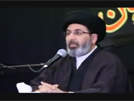Preface
- Details
- Hits: 4375
Preface
--------------------------------------------------------------------------------
By
by John Cooper
The Holy Qur'an, the scripture of the Islamic religion, was first translated into English by Alexander Ross in 1649, after a French version by Andre du Ryer. After three and a half centuries, and many subsequent translations, however, it still remains a closed text to most English readers.
Many reasons can no doubt be found for the apparent difficulties encountered in efforts to engage with the Qur'an in English; some of these will be to do with problems of language, others with more complex matters of religious, social, and political history and their influence on a particular translator's motivation and the individual's response to the Book, as the Qur'an calls itself. It is rarely a comfort for the reader to be told that there exists a vast learned literature, composed by Muslim scholars down through the centuries, devoted to the genre of tafsir, or commentary on the Qur'an; this can be rather more intimidating than comforting. Moreover, the twentieth century has witnessed a growing literature in English on the Qur'an, written both by Muslims and non‑Muslims, but which is also more often than not directed at the scholarly reader, and can leave someone wishing a simple introduction in a state of frustration. What is very often needed by a person coming to this scripture for the first time with a sincere desire to penetrate its meaning is some guide as to how it influences the ordinary believer, how it exerts its effect on his or her life, and how it penetrates the deepest layers of a Muslim's conscience. This work by Bahram Samii marks a significant effort to give just such an introduction.
The author has avoided an academic style, and has instead concentrated on a simple exposition of the way in which the Qur' an presents itself in its own terms and how this can be disclosed through a careful reading of the text. It cannot, of course, be done without some knowledge of the Arabic in which the Qur'an was revealed to The Prophet Muhammad (SA) over fourteen centuries ago, and this terminology has been explained to a sufficient degree for the non‑expert to understand the sometimes very different meanings which such a vocabulary has when compared to its contemporary English translations. Naturally, the meaning of the Qur'anic text has been the subject of the profoundest meditations and discussions throughout the history of Islamic scholarship, and the author has incorporated some of this material, especially through the comments of contemporary Muslim translators and scholars; but this has been kept to a minimum so as to avoid overburdening the reader with unnecessary complexities.
Whoever is beginning to read the Qur'an in English will be able to use this work to understand how the book is not an impenetrable text but a living guide for the life of the ordinary, thinking Muslim, the key to the understanding of the Islamic view of the world and how the Muslim relates to other views of the world in our times. The author has not, however, made any compromises in order to present his ideas, and what will strike the reader is the straightforward manner in which he has managed to communicate his own deeply committed reflections on the Qur'an, reflections with which the reader will easily be able to sympathize. This book will surely serve as an invaluable companion for those setting out on the stimulating journey to discover the message that the Qur'an extends to everyone who is prepared to listen to what it has to say.
John Cooper,
Cambridge 1997.











